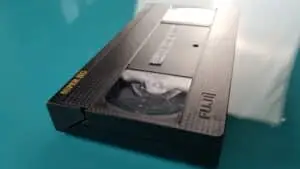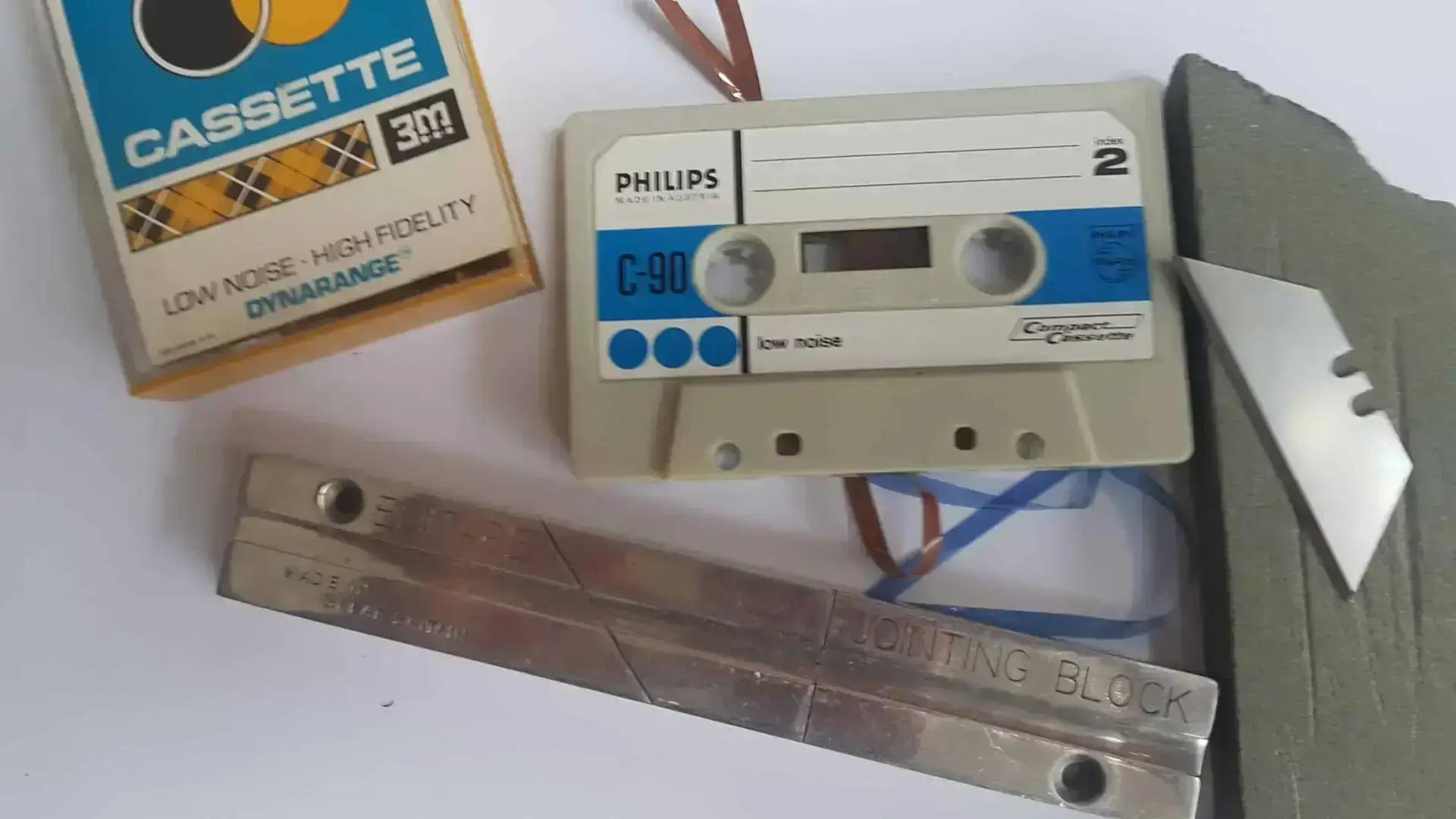


Audio collections consist of various materials such as discs (records) and tapes. The most commonly occurring are discs while older collections may also contain cylinders. In this article, we will discuss the proper care and handling of audio tapes and discs to ensure audio tape preservation.
The oldest tapes stored in archives are still playable after 40 or 50 years, and discs have survived for a century or more. However, recordings that are not manufactured, handled, or stored correctly can considerably reduce their potential lifespan and may need audio tape restoration. Some tapes and discs have failed in less than ten years due to chemical instability, inadequate storage, or improper handling. Follow these steps for cassette tape maintenance!
Sound recordings need to be handled correctly to avoid contamination or other damage. The playing surfaces of a disc or tape should not be handled, and they should be carried and held only in their appropriate parts. When not in use, recordings should be kept in their sleeves/boxes, which offer physical protection and resistance to fire and water damage.
Discs and tapes should be stored in cool, dry conditions with a minimum of dust and pollutants, and shelved upright on sturdy shelves with dividing supports every 100mm-150mm. Changes in temperature or humidity, direct sunlight, local heat sources, moisture, dust, and magnetic fields should be avoided. Cassette boxes should have projections to lock the hubs and prevent them from turning during storage or movement.
Tapes should be played through or respooled every few years to check their condition and to minimize any tendency for layers to stick together or to print-through magnetically. Before reproducing any tape, which has not been used for a long time (many months or years), it should be carefully rewound 2-3 times to relieve any tension in the tape and to reduce the effect of print-through.
Magnetic recordings on tape, cassette, or disc are made and destroyed by magnetic fields. The permanent magnets in headphones and compact loudspeakers can produce a strong magnetic field which may damage the tapes if they are stored in proximity. Normal house wiring is not usually a problem, however high voltage power lines and lightning arresters in large buildings can produce dangerous levels of electromagnetic interference. The best way to avoid this is to undergo a magnetic tape conversion.
Before playing, discs with light contamination should be cleaned by hand using a suitable brush, with antistatic treatment as required. Clean extensive contamination, including mold, from disc surfaces and tape edges before further handling. If tapes or discs get wet, remove all moisture as quickly as possible. Special cleaning machines are used by archives and professional engineers for maximum effectiveness. The best way to prevent the loss of your audio is to do an audio tape digitization.
It is a good idea to copy old, fragile, or extremely valuable recordings if you wish to listen to them often. Playback equipment such as tape decks and turntables should be cleaned and adjusted regularly, making sure that the recordings themselves are clean. When older recordings are being dubbed onto a new copy, electronic filtering can sometimes be effective in removing unwanted noise. It can also remove the effects of wear or damage.
If the heads do need cleaning, they should preferably be cleaned manually by a trained person. Cleaning tapes should only be used as a last resort as some types can cause premature head wear or damage.
Yes, recordings manufactured anywhere in the world can be played in other countries.
In the event of a flood or bushfire, it’s crucial to identify which audio recordings are truly irreplaceable, such as unique recordings of baby’s first words or a deceased relative. Commercial recordings or equipment that can be replaced, if necessary, should be considered as well. These are our steps for ensuring audio tape preservation.
To safeguard recordings of great personal importance from extreme hazards, consider making copies and storing them elsewhere. In the event of a flood, evacuate the recordings or store them in a sealed container to avoid getting wet. If a fire breaks out, evacuate the recordings or bury them in a sealed container.
If you notice any unusual changes to your recordings, seek professional advice immediately. Signs of chemical deterioration, such as shedding, sticking, or a strong smell of vinegar or plastic/organic odor, require expert treatment. Look out for crazing, cracks, mold, contamination, or interaction with packaging on any recording.
Please note that this advice is based on the best international experience and information available to Supaphoto. Different circumstances may apply to specific audio items. If you need an audio restoration service, for the best care of your audio recordings, seek specialist advice.